Nicolas Peltier
A Superposition Calculus for Abductive Reasoning
Jul 13, 2014
Abstract:We present a modification of the superposition calculus that is meant to generate consequences of sets of first-order axioms. This approach is proven to be sound and deductive-complete in the presence of redundancy elimination rules, provided the considered consequences are built on a given finite set of ground terms, represented by constant symbols. In contrast to other approaches, most existing results about the termination of the superposition calculus can be carried over to our procedure. This ensures in particular that the calculus is terminating for many theories of interest to the SMT community.
Decidability and Undecidability Results for Propositional Schemata
Jan 16, 2014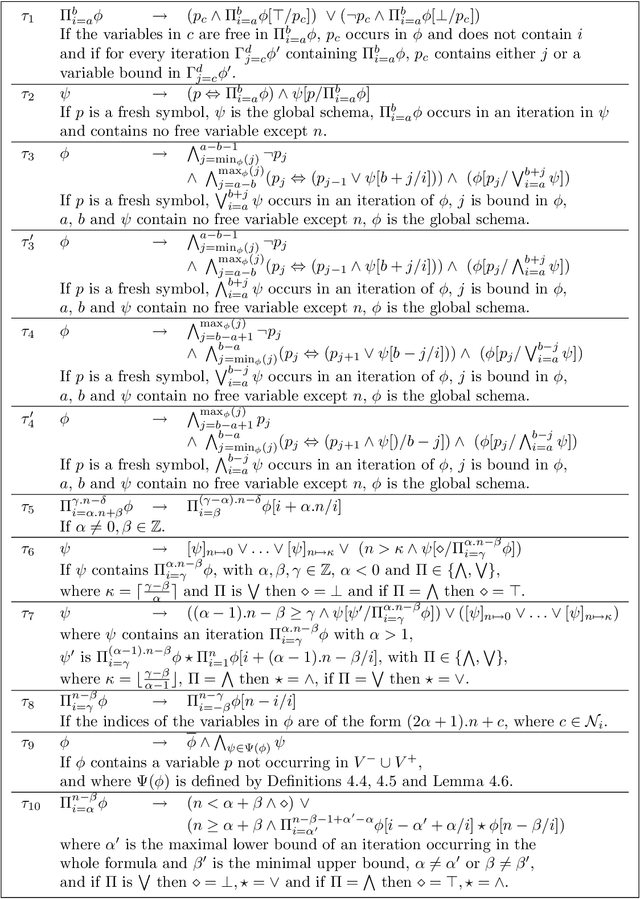
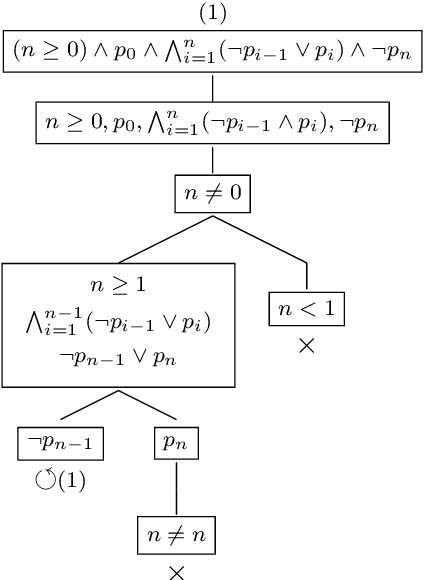
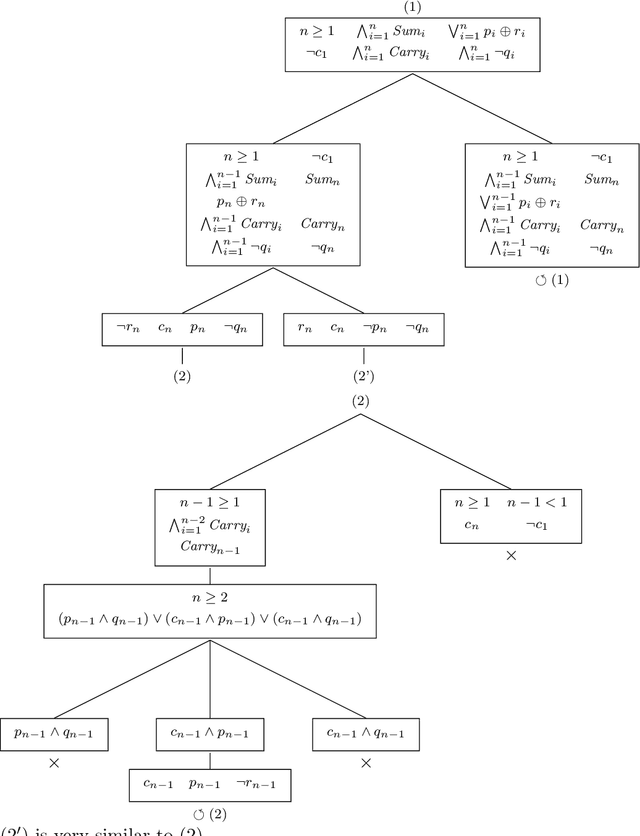
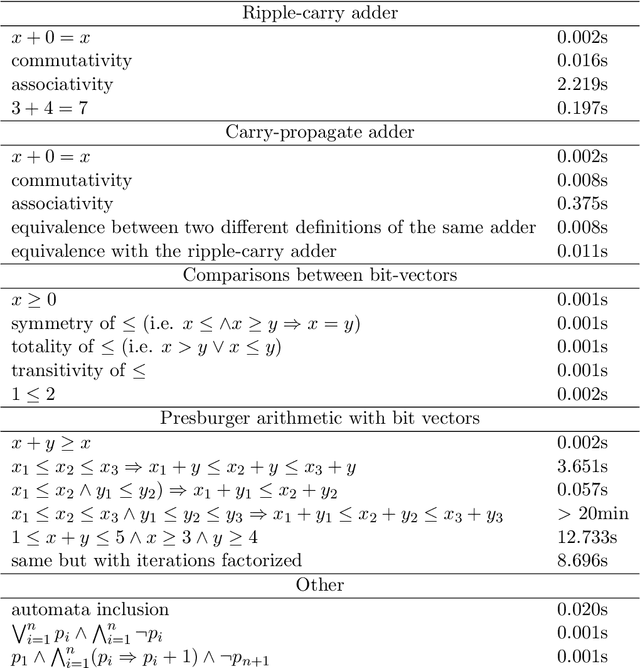
Abstract:We define a logic of propositional formula schemata adding to the syntax of propositional logic indexed propositions and iterated connectives ranging over intervals parameterized by arithmetic variables. The satisfiability problem is shown to be undecidable for this new logic, but we introduce a very general class of schemata, called bound-linear, for which this problem becomes decidable. This result is obtained by reduction to a particular class of schemata called regular, for which we provide a sound and complete terminating proof procedure. This schemata calculus allows one to capture proof patterns corresponding to a large class of problems specified in propositional logic. We also show that the satisfiability problem becomes again undecidable for slight extensions of this class, thus demonstrating that bound-linear schemata represent a good compromise between expressivity and decidability.
Instantiation Schemes for Nested Theories
Jul 25, 2011Abstract:This paper investigates under which conditions instantiation-based proof procedures can be combined in a nested way, in order to mechanically construct new instantiation procedures for richer theories. Interesting applications in the field of verification are emphasized, particularly for handling extensions of the theory of arrays.
Generating Schemata of Resolution Proofs
Jun 14, 2011Abstract:Two distinct algorithms are presented to extract (schemata of) resolution proofs from closed tableaux for propositional schemata. The first one handles the most efficient version of the tableau calculus but generates very complex derivations (denoted by rather elaborate rewrite systems). The second one has the advantage that much simpler systems can be obtained, however the considered proof procedure is less efficient.
Linear Temporal Logic and Propositional Schemata, Back and Forth (extended version)
Apr 19, 2011


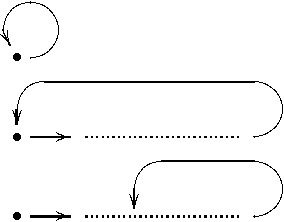
Abstract:This paper relates the well-known Linear Temporal Logic with the logic of propositional schemata introduced by the authors. We prove that LTL is equivalent to a class of schemata in the sense that polynomial-time reductions exist from one logic to the other. Some consequences about complexity are given. We report about first experiments and the consequences about possible improvements in existing implementations are analyzed.
A Decidable Class of Nested Iterated Schemata
Jan 24, 2010Abstract:Many problems can be specified by patterns of propositional formulae depending on a parameter, e.g. the specification of a circuit usually depends on the number of bits of its input. We define a logic whose formulae, called "iterated schemata", allow to express such patterns. Schemata extend propositional logic with indexed propositions, e.g. P_i, P_i+1, P_1, and with generalized connectives, e.g. /\i=1..n or i=1..n (called "iterations") where n is an (unbound) integer variable called a "parameter". The expressive power of iterated schemata is strictly greater than propositional logic: it is even out of the scope of first-order logic. We define a proof procedure, called DPLL*, that can prove that a schema is satisfiable for at least one value of its parameter, in the spirit of the DPLL procedure. However the converse problem, i.e. proving that a schema is unsatisfiable for every value of the parameter, is undecidable so DPLL* does not terminate in general. Still, we prove that it terminates for schemata of a syntactic subclass called "regularly nested". This is the first non trivial class for which DPLL* is proved to terminate. Furthermore the class of regularly nested schemata is the first decidable class to allow nesting of iterations, i.e. to allow schemata of the form /\i=1..n (/\j=1..n ...).
 Add to Chrome
Add to Chrome Add to Firefox
Add to Firefox Add to Edge
Add to Edge